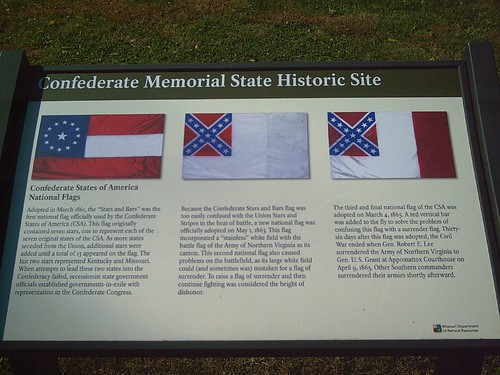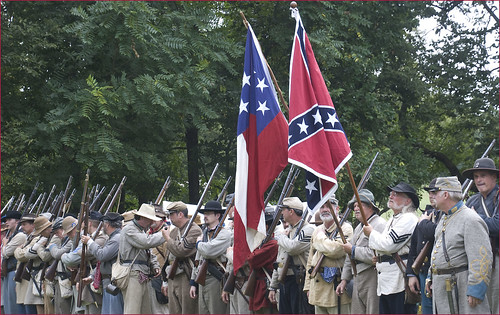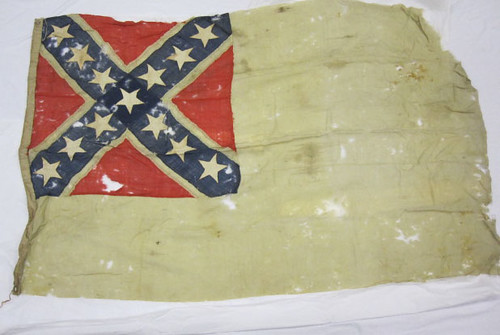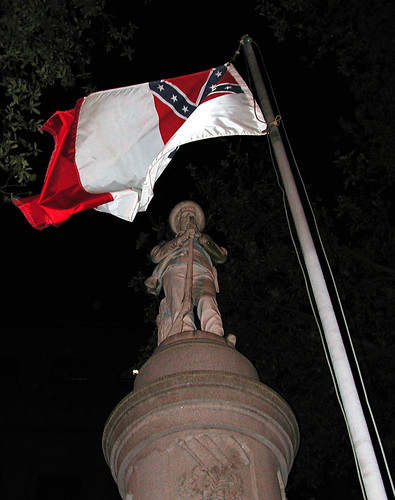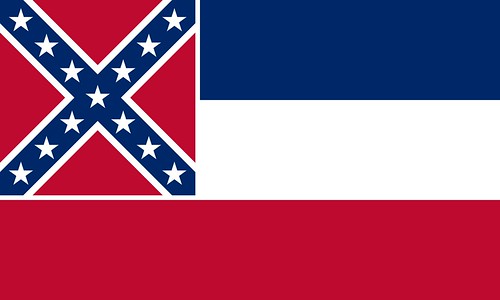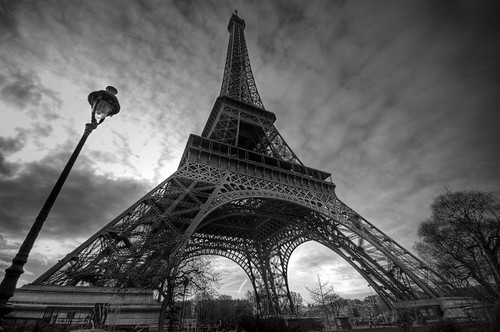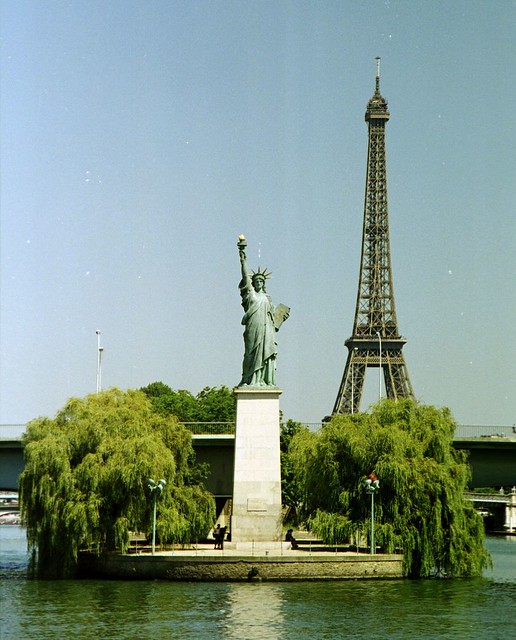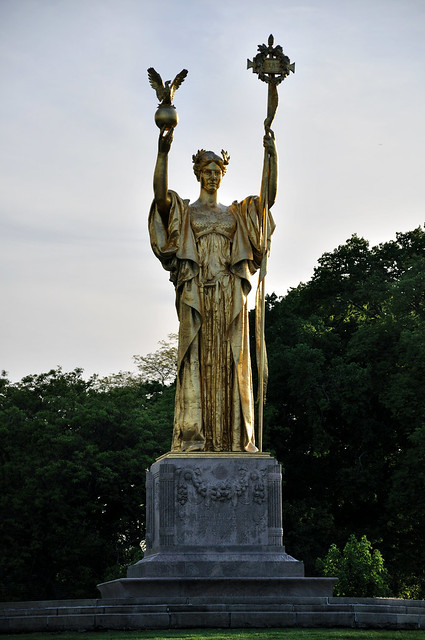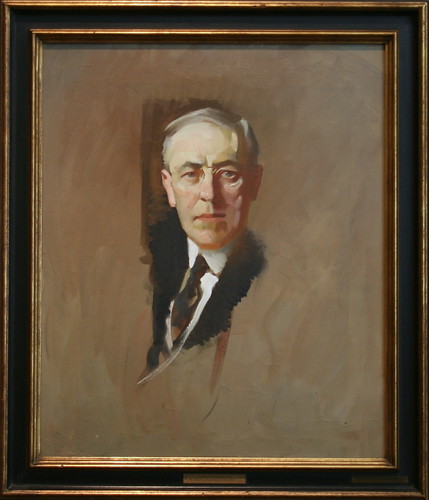
Photo courtesy of Cliff's Flickr page - Thomas Woodrow Wilson, Twenty-eighth President (1913-1921: https://www.flickr.com/photos/nostri-imago/2872022732
Creative Commons License: https://creativecommons.org/licenses/by/2.0/
So, all of this talk about the South, symbols of the Confederacy, and the legacy of slavery and racism in this country got me thinking a bit. I decided to explore the racial attitudes of one of the traditionally most admired American leaders of the 20th century, Woodrow Wilson.
Wilson is best known as a lover of peace, who tried to keep the United States out of World War I, and then set up the League of Nations afterward in hopes of establishing a more permanent peace.
However, that rather impressive achievement by Wilson is tempered by his racist legacy, which is far more considerable than I ever knew prior to exploring this subject on my own for this blog entry. Turns out, he as a strict segregationist and white supremacist, who hailed the Ku Klux Klan and pushed forward a segregationist agenda. Segregation was introduced to the Executive Branch of government by Woodrow Wilson.
Here are some quotes from a particularly illuminating article written by Professor William R. Keylor of Boston University, which I hope you read for yourself (you can click on the link below, at the bottom of this blog entry):
"Born in Virginia and raised in Georgia and South Carolina, Wilson was a loyal son of the old South who regretted the outcome of the Civil War. He used his high office to reverse some of its consequences. When he entered the White House a hundred years ago today, Washington was a rigidly segregated town — except for federal government agencies. They had been integrated during the post-war Reconstruction period, enabling African-Americans to obtain federal jobs and work side by side with whites in government agencies. Wilson promptly authorized members of his cabinet to reverse this long-standing policy of racial integration in the federal civil service.
"Cabinet heads — such as his son-in-law, Secretary of the Treasury William McAdoo of Tennessee – re-segregated facilities such as restrooms and cafeterias in their buildings. In some federal offices, screens were set up to separate white and black workers. African-Americans found it difficult to secure high-level civil service positions, which some had held under previous Republican administrations.
"A delegation of black professionals led by Monroe Trotter, a Phi Beta Kappa graduate of Harvard and Boston newspaper editor, appeared at the White House to protest the new policies. But Wilson treated them rudely and declared that “segregation is not a humiliation but a benefit, and ought to be so regarded by you gentlemen.”
Here is what he said about the movie "Birth of a Nation" and Wilson's role in that:
Birth of a Nation
With quotations from Wilson’s scholarly writings in its subtitles, the silent film denounced the Reconstruction period in the South when blacks briefly held elective office in several states. It hailed the rise of the Ku Klux Klan as a sign of southern white society’s recovery from the humiliation and suffering to which the federal government and the northern “carpetbaggers” had subjected it after its defeat in the Civil War. The film depicted African-Americans (most played by white actors in blackface) as uncouth, uncivilized rabble.
The following are some quotes by Woodrow Wilson:
“The white men were roused by a mere instinct of self-preservation—until at last there had sprung into existence a great Ku Klux Klan, a veritable empire of the South, to protect the Southern country.”
“If the colored people made a mistake in voting for me, they ought to correct it.”
“The domestic slaves, at any rate, and almost all who were much under the master’s eye, were happy and well cared for.”
“[Reconstruction government was detested] not because the Republican Party was dreaded but because the dominance of an ignorant and inferior race was justly dreaded.”
“Off by themselves with only a white supervisor, blacks would not be forced out of their jobs by energetic white employees.”
“The whole temper and tradition of the place [Princeton] are such that no Negro has ever applied for admission, and it seems unlikely that the question will ever assume practical form.”
“Any man who carries a hyphen about with him carries a dagger that he is ready to plunge into the vitals of this Republic whenever he gets ready.”
“In the matter of Chinese and Japanese coolie immigration, I stand for the national policy of exclusion. We cannot make a homogenous population out of people who do not blend with the Caucasian race…Oriental Coolieism will give us another race problem to solve and surely we have had our lesson.”
“Now came multitudes of men of the lowest class from the south of Italy, and men of the meaner sort out of Hungary and Poland, men out of the ranks, where there was neither skill nor energy nor any initiative of quick intelligence, and they came in numbers which increased from year to year, as if the countries of the south of Europe were disburdening themselves of the more sordid and hapless elements of their population.”
Sources:
The long-forgotten racial attitudes and policies of Woodrow Wilson by Professor William R. Keylor of Boston University, March 4th, 2013
Top 10 Most Racist Quotes from Progressive Hero Woodrow Wilson by Josh Guckert:
